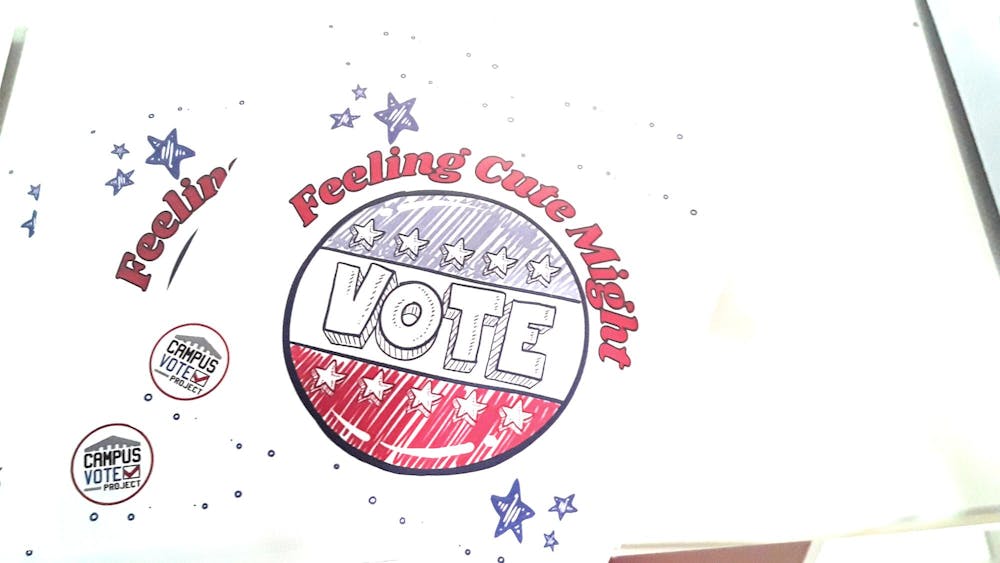The November election is coming up quickly.
With all the chatter and media attention around the election, it may feel overwhelming, especially for students who are first-time voters or whose voting location is far away. Further, some newer voters who only intend to vote in the general election may not be aware of the issues and the local candidates on the ballot.
For busy students who aren’t quite familiar with the process, learning how to vote may not always be a priority.
“Studying for my classes and teaching myself the material takes up enough time that studying up on candidates and their positions falls to the back burner,” said Tyler Lloyd, a senior finance and economics major.
Point is, voting in the election can be daunting. Even so, voting is a way for every U.S. citizen to take part in government elections. Lucas Smith, a senior music education major, said that it’s important for everyone to vote.
“I think it’s necessary for everyone to use their right to have their voice heard. Even if I disagree with a person’s political views, I would still encourage them to vote because I think it’s all citizens’ responsibility,” Smith said.
Here are different ways students can get prepared to vote, so that they can feel confident in the process.
1. Request an absentee ballot
Voting may feel more like a chore than a democratic right, especially if voting locations are far away. However, voters can request an absentee ballot. The deadline to request an absentee ballot is seven days before the election. Absentee ballots can also be returned in person to the county board of elections before the polls close at 7:30 p.m. on Election Day. Additional information on absentee voting is available here.
2. Research local, state and federal candidates
Voters don't need to be political experts, but it does help to have some background knowledge before going to vote. Prospective voters should take some time to read about the candidates and issues that will be on their ballot.
Ballot Ready lets voters enter the address associated with their voter registration, and it provides information on every candidate on their ballot.
Ballotpedia is the digital encyclopedia of American politics and the nation’s premier resource for unbiased information on elections, politics and policy. This allows for a more in-depth analysis of the candidates and their positions on different issues.
3. Know where to vote
Voters who decide to vote in person can look up their polling location here. There’s bound to be a line, so plan accordingly. Further, individuals planning to vote in person should ensure they have valid IDs when they go to vote.
4. Get out and vote
This year’s election is Tuesday, Nov. 5. Some students might feel anxious about voting, but as long as they've registered, know whether they're voting absentee or in person and have done proper research, then they're ready for Election Day.








